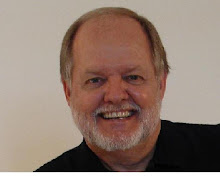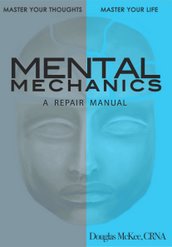Since the dawn of man, motivation has been used to urge people to learn something. For the majority of our existence on this planet, Mother Nature was been all the motivation any of our ancestors ever needed. It was really simple, “Learn, or die.” So we learned and kept on learning until now, when many of us have the luxury of never having been hungry or without shelter.
As a species, we have succeeded in becoming so materially prosperous that our physical wealth has given rise to even greater problems. We have learned that full stomachs, comfortable beds, and an infinite varieties of toys and distractions just don’t bring us the peace, contentment, and security we are actually seeking. They elude us and the evidence is all around us.
Fifteen of the top selling twenty drugs in the USA in 2006 were for depression, anxiety, or pain. This is a massive problem. If the trends continue, eventually the majority of the population will be depending on drugs for a sense of well being rather than being able to rely on their own personal knowledge and capabilities. The statistics show we may have already reached that point: 70 million Americans have hypertension, 46 million suffer from depression, 43 million from anxiety, 20 million can’t sleep, 16 million have road rage, and almost 3 million are incarcerated in prisons and jails.
Depression is the second highest cause of illness and death in the age group 15-44 years and the World Health Organization predicts, by 2020, it will be the second leading cause of illness and death worldwide in all age groups.
We are in a huge transition, evolving from being an industrial society to being an informational society and the current economic turmoil is part of the change. What it will look like when we get there is not known at this time, but most of us realize we must acquire some new skills if we are to survive the shift in good shape.
The “industrial age” education we received is not sufficient to allow us to thrive in an informational society. Up until recently, children were taught to read, write, do basic math, follow instructions, and don’t cause problems. The public educational system is starting to incorporate informational tools but has not yet changed its philosophy from “What do I need to know to be a good employee in a factory,” to “How do I find the information I need and how do I use it?”
We are now even more motivated because we realize that material wealth is a disappointingly small part of the overall path to real abundance. We must look elsewhere for the answers. Motivation is still the method most used to inspire us to change, but motivation is only a skill used by the ones doing the motivating. Motivation is not a skill for change; it is the reason for change.
It appears we all want self-directed, peaceful, happy and prosperous lives, and a huge amount of effort is going toward attempting to achieve those goals. Many of us have progressed enough to understand the changes we must make are actually internal; that they must be made by each of us on an individual basis. But what are the skills we must learn and the changes we must make?
What we need right now is a manual that will help us understand and develop the skills to live in an informational age. Actually they are the very same mental skills that have been used by all successful people since man became man and they are listed below. The most important skill is introspection. We need to learn to see our thoughts and experiences as information. Then we can see that it is “how” we use that information that is most important.
The Industrial Age education tried to teach us everything we ever needed to know to be good employees as long as things didn’t change, but guess what? Things changed and are they changing rapidly and we are having difficulty changing with them.
We are deluged by an enormous amount of information we have to process, a huge number of options to select from, and more decisions we simply have to make that ever before. AND, if that isn’t enough, the information is changing rapidly. The life of a new idea used to be years. Now, by the time a product is available on the market, it is obsolete.
How are we supposed to survive, let alone thrive, in such an environment? It’s not magic. We need to learn how to use what we know in different and more efficient ways so we can adapt as the changes happen. Mental flexibility is the key. Our mindset has to change to accept change as a way of life.
The manual needs to explain not only what the changes in our thinking must be but, more importantly, how to make them. It has to be a collection of the mental skills, thought processes, and tools we can use that will actually bring about change and it must be written in simple easy to understand language so we can start using the tools immediately
If we don’t know how to use a tool, even the most expensive tool in the world becomes nothing more than a paperweight.
Once we learn and practice the processes of change, we will be able to respond to change rather than simply continue on as we always have. Like learning to drive a car, we get better with practice. Eventually we will become proficient and change will cease to be threatening as it is for most.
Also, after we have learned and practiced the processes involved in change, we will understand the tools and techniques that underlie the success of all self help and motivational systems. We will be able to understand that there really is no secret within the “Secret.” We will also see the reasons many people get a temporary boost from motivational systems and then slowly slide back into their original behaviors.
Personal change is not really difficult, just really misunderstood. The very fact that you are reading this email demonstrates you already have the foundation for what it takes to have a peaceful, happy and prosperous life. It's my job to convince you of that, and help you recognize and enhance the thinking tools and techniques you already use to help you attain it.
There used to be many areas in my life that needed significant change. And, just like many people, I often asked myself the following questions:
Why not me?
Why can't I…?
Why do they…?
What do they have that I don't?
What I didn't realize is that I already had the tools and techniques to remake my life. I had the answers. WE ALL have them. We really do! Every time we succeed at anything it is because we used some very specific thinking skills.
Thinking is basically a collection of habits. We all have thinking habits that can lead us to success and we have habits that sabotage our hopes and dreams. We can learn to enhance the ones that work and eliminate the ones that don’t.
But wanting to know how to do something and knowing how to do it are not the same.
“I am rich and happy and you can be too,” does not teach us how to be either rich or happy, does it?
Up until now, motivation has been the basis for most self help systems, but 94% of us can’t make the systems work, not because we don’t try hard enough, but because MOTIVATION IS NOT A SKILL SET!
The 6% double alpha personalities among us, the most successful, automatically use the thought skills listed below in the successful part of their lives. They…
• choose what they think about
• base decisions on verifiable facts
• monitor what they are thinking
• control their negative emotions
• choose their response
• keep their problems in perspective
• use their energy to find solutions
• almost always plan their future
• able to respond to opportunity
• enjoy their success
YOU DO TOO, in the successful parts of your life.
In the problem areas of our lives, the following thought habits are in control. We……
• react to what's going on around us
• believe our thoughts are facts
• go with the flow
• allow our emotions to dictate
• react automatically
• blow problems out of proportion
• use our energy to assign blame
• focus on the past
• usually reject opportunity
• complain about our plight
MENTAL MECHANICS: A Repair Manual is the first easy to understand and usable manual describing the thinking processes we use when we are handling emotions, needs, wants, self esteem, and relationships. These are the areas of our lives that generate us 99% of our stress and negative emotions.
MENTAL MECHANICS is the missing companion to the positive thinking books. It is the book that can teach us how to quit thinking negatively so the positive can work.
The simple tools provided in the manual enhance both our understanding and ability to choose successful thought processes and break the habit of using the negative ones that generate 99% of our negative emotions.
It’s not rocket science, you are already using them! You had to, to get this far.
What can you get by understanding how you think and learning to focus your energy on solutions rather than problems? MORE SUCCESS, FEWER NEGATIVE EMOTIONS, BETTER HEALTH, and BETTER RELATIONSHIPS AT HOME AND AT WORK.
Subscribe to:
Post Comments (Atom)






No comments:
Post a Comment